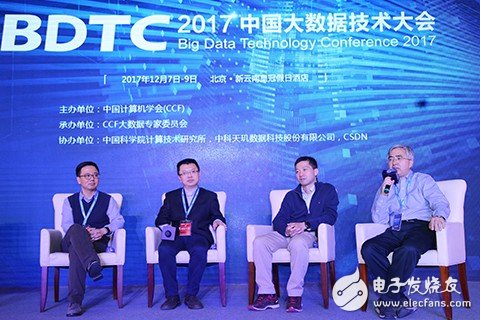industrial electronic PCBA,PCBA components assembly,Robots Motherboard,Electronic Custom Pcb Dongguan Jinglin Communication Technology Co., Ltd. , https://www.jlpcba.com
What miracles can big data create? Not for data but for data!
With the growing integration of big data technology into everyday life, the future will see a more efficient and rational allocation of public resources that are currently in short supply. This transformation has the potential to improve quality of life across various sectors.
In 1844, Samuel Morse sent the first telegram in history: "What a wonderful thing God has created!" This moment marked the beginning of modern telecommunications. Fast forward to today, with continuous advancements in information technology and AI-driven data analysis, we are witnessing a new era where big data could bring about unprecedented changes. During the 2017 China Big Data Technology Conference (BDTC2017), several experts, including Professor Zhou Xiaofang from Queensland University, Liu Tieyan from Microsoft Asia Research Institute, Qian Weining from East China Normal University, and Zhang Wenxi from Didi Chuxing, discussed how big data might shape our future.

**Big data is not for data’s sake**
Many enterprise big data systems today feature impressive dashboards and visually appealing analytics, but the real value often remains hidden. The four experts shared their insights on this challenge:
Zhang Wenzhao emphasized that the focus should be on solving real problems rather than collecting data for its own sake. He explained, “We must first identify the issues we want to address and then determine what data is needed to solve them. Only by doing so can we truly uncover meaningful insights.â€
Professor Zhou Xiaofang added that once data is available, it's important to think creatively and explore new applications. “The key is to combine data with intelligence and design processes that leverage data effectively,†he said.
Liu Tieyan pointed out that while data is valuable, it's not always useful. “Data needs to be processed properly—cleaned, analyzed, and interpreted. Without the right methods, even large volumes of data may not deliver real value.â€
Qian Weining concluded by comparing big data to electricity. “Just as electricity revolutionized industries when it became widely available, big data has the potential to transform business models and decision-making. But we need to rethink how we use it, not just present it as a report.â€
**Data cleaning: Separating gold from sand**
One of the biggest challenges in big data is ensuring data quality. Noise, inaccuracies, and inconsistencies can hinder effective analysis. Experts discussed how to clean and refine data for better results.
Zhou Xiaofang highlighted the importance of data integrity, noting that incomplete or biased datasets can lead to flawed conclusions. “Data quality management is crucial. We need to ensure accuracy, consistency, and timeliness at every stage.â€
Zhang Wenzhao stressed the importance of verifying data at all levels. “At Didi, we use a funnel model to track user actions and identify where issues occur. This helps us pinpoint errors and improve service reliability.â€
Liu Tieyan shared his experience with traditional enterprises, many of which struggled with disorganized data before AI could help. “Cleaning and organizing data is the first step. Only then can we build intelligent systems that truly work.â€
**Data application: Reshaping society and resource distribution**
Beyond technical discussions, the experts also explored how big data could impact people’s lives and reduce regional disparities. They envisioned a future where public resources like train tickets, medical services, and transportation are allocated more fairly.
For example, during peak travel seasons, big data could prioritize ticket sales for those with genuine needs. Similarly, patients in urgent need of care could access medical services more efficiently. Public transportation systems could also be optimized based on real-time data.
As big data continues to evolve, its true power lies not in the volume of data itself, but in how we use it to make smarter decisions, improve efficiency, and enhance people’s lives. With thoughtful implementation, big data can become a force for good, driving progress and equity in the years to come.